Albums of the Decade 2011-2021 | reviews, news & interviews
Albums of the Decade 2011-2021
Albums of the Decade 2011-2021
Our writers explain their choices from the last ten years
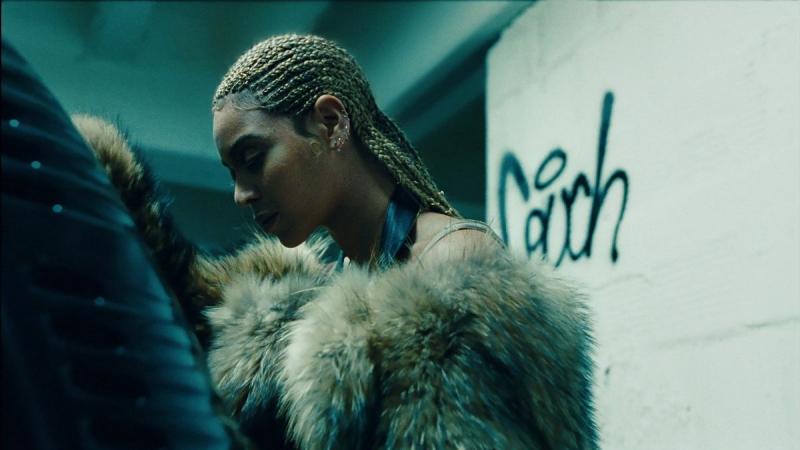
On Valentine’s Day 2011 Disc of the Day album reviews sprang into being, and has been solidly reviewing five albums a week ever since. Out of the many thousands, which ones did we rate the most? To mark 10 years since its inception, 12 of theartsdesk’s music writers mark the occasion by choosing an Album of the Decade. They appear in alphabetical order by writer.
Alt-J – An Awesome Wave – by Russ Coffey
 The early 2010s was a period when UK rock music slowly lost its swagger. The harsh economic climate meant songwriters increasingly forgot about the good times; instead, they turned their minds to alienation and angst. The result was a massive resurgence of indie bands.
The early 2010s was a period when UK rock music slowly lost its swagger. The harsh economic climate meant songwriters increasingly forgot about the good times; instead, they turned their minds to alienation and angst. The result was a massive resurgence of indie bands.
Alt-J were one such outfit. Like many alt-rockers, they were bookish, male and came from art school. What set them apart was their impressive knack for arresting tunes and innovative arrangements. Their debut, and magnum opus, was An Awesome Wave (2012). Its melodies were, by turns, catchy, lush and utterly other-worldly. Truly, no-one sounded like them.
The "biggest" track was the jaunty murder-ballad, "Breezeblocks". The song's irresistible blend of folktronica and old-timer blues was, for months, a constant presence on radio and TV. Almost as ubiquitous was "Taro" with its eerie mix of African lutes and Bon Iver-style harmonies.
By the autumn of 2012, the album had won the zeitgeist-defining Mercury Prize. It's still a cult favourite today. So, was it the best LP of the decade? The answer's a bit of yes and no. There were undoubtedly better albums produced during that time, but they were all by well-established bands. An Awesome Wave was, to my mind, the best quintessentially 2010s record there was.
Bob Dylan – Rough and Rowdy Ways – by Tim Cumming
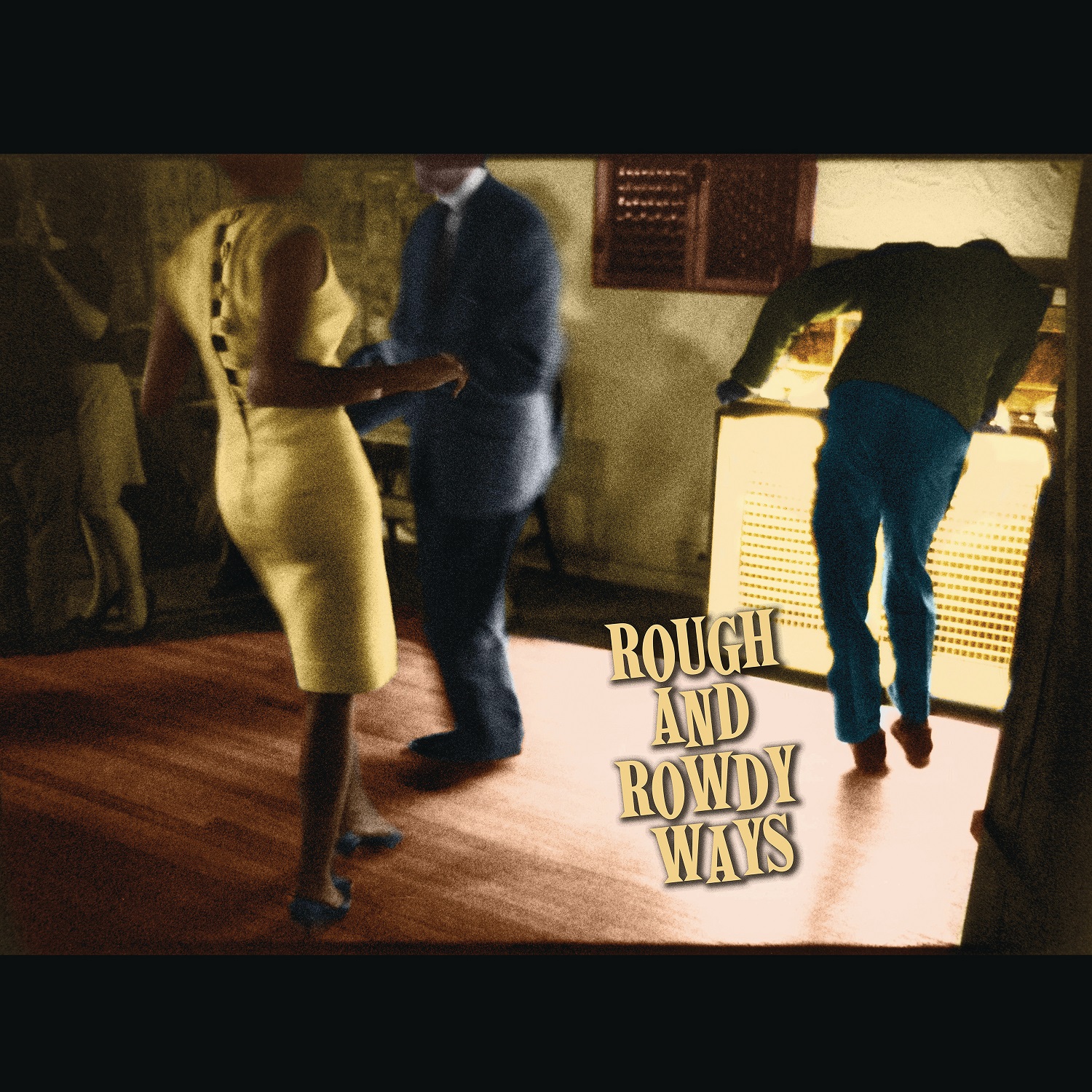 With the arts entombed in successive lockdowns, and live music an increasingly dislocated sense memory from a vanished era, we appear to be living a dystopia even Philip K Dick couldn’t imagine.
With the arts entombed in successive lockdowns, and live music an increasingly dislocated sense memory from a vanished era, we appear to be living a dystopia even Philip K Dick couldn’t imagine.
Into this strange world, four days into the first UK lockdown, came Bob Dylan’s first self-penned song for the best part of a decade. His longest ever, too. "Murder Most Foul" was deep and strange, unpicking the JFK mythos and mixing it up with a swirl of 20th-century song titles and artists that seemed to carry an entire era in its tidal wake. The album that followed in June is unlike anything Dylan has ever done. It bore into me like no Dylan album has done since Time out of Mind, and before that, Street-Legal. For devotees of these, Rough and Rowdy Ways’ songs have become constant companions, its soundscape and feel an all-enveloping world unto itself, bottomless and borderless, and seemingly bound by all the roads a man can walk down. It contains multitudes. For me, it stands tall over all the work I’ve heard over the past decade. Dylan met the times even as they were drastically a-changin’, without looking back, and it’s frankly thrilling and near-miraculous that a near 80-year-old singer and writer can do that. Heaven-sent or hellbound, it’s truly one of a kind, and the world is a better place with Rough and Rowdy Ways in it.
Beyoncé – Lemonade – by Lisa-Marie Ferla
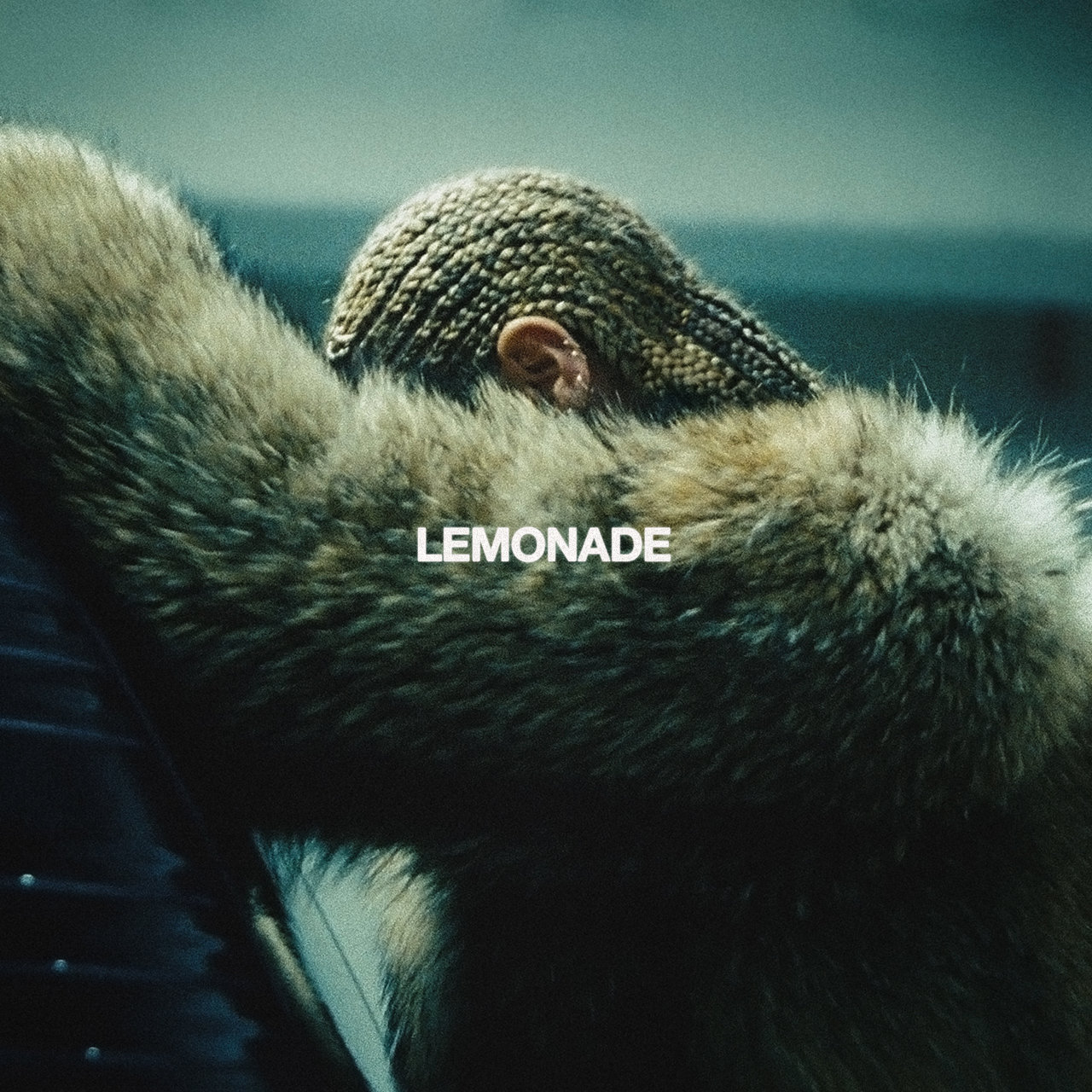 Do you remember the last time you read something on the "death of the album"? Because I'd wager it was some time before 23 April 2016. Beyoncé's Lemonade was a resounding "boy bye" to the idea that there was no place for an artist's singular vision in a world of algorithmic streaming and curated playlists.
Do you remember the last time you read something on the "death of the album"? Because I'd wager it was some time before 23 April 2016. Beyoncé's Lemonade was a resounding "boy bye" to the idea that there was no place for an artist's singular vision in a world of algorithmic streaming and curated playlists.
Beyoncé had surprise-released music before – her 2013 self-titled album appeared with no prior warning, with a short film to accompany each track – but on Lemonade she upped the ante. The album was released first as a 65-minute film, its soundtrack a widescreen meditation on the Kubler-Ross model of grief. What was on one level a deeply personal reflection on and reckoning with her husband's long-rumoured infidelity was placed in a wider context of inter-generational, racial and gender-based trauma, the words of Malcolm X ringing in the listener's ears: The most disrespected person in America is the Black woman. The most unprotected person in America is the Black woman. Bereaved mothers raised photos of their Black boys, murdered by police, to the camera. Black icons – Serena Williams, Zendeya, the Creole chef Leah Chase – reclaimed the Madewood Plantation House. Hattie White, grandmother of Jay-Z, shared wry wisdom, lending the project its title.
The music could have collapsed under the weight of its own worthiness. Instead, Beyoncé assembled a sort of Great American Songbook for the 21st century, combining elements of gospel, rock, blues, soul, trap, reggae and county. Jack White appeared on a track, as did The Weeknd and Kendrick Lamar. The result was heartbreaking and joyful, introspective and cathartic; its parts eminently listenable, its whole a triumph. The rift in the Carters' marriage may have healed, but Lemonade grows in resonance and relevance with every passing year.
Xylaroo – Sweetooth – by Thomas H Green
 There are two ways of approaching “The Album of the Decade”. One is choosing a statement album, a flagship biggie, which sums up the period. The other is picking the one you’ve lived with, loved and listened to the most. The last ten years have been ruled by women in pop. The best of it, for me, has been about songs rather than full albums (for example, Katy Perry’s unbeatable “Chained to the Rhythm”), but then Beyoncé suddenly gave us Lemonade. I have no doubt whatsoever this is the “flagship biggie which sums up the period”. Boom! Queen B nails it! Lemonade receives its dues above, so, instead, here’s the one I’ve “lived with, loved and listened to the most”. It's also an album that resonates wildly and more widely than that. My Album of the Decade is Sweetooth by sister duo Xylaroo, which arrived to little fanfare in 2016. London-based Holly and Coco Chant major in ostensibly simple, strummed campfire pop, but, after a few listens, their candy-sweet voices and glorious harmonies smuggle through multiple layers more. Their songs are philosophical, funny, mystic, desperate, poetic, chatty, doomed, hedonistic, and thought-provoking, with a precipitous yet hopeful sense of some Nietzschean and societal abyss. As I wrote at the time, Sweetooth is “a gem weighted with subconscious prescience of the darkness to come”. It fits these times like a glove and it properly gets me on every single listen.
There are two ways of approaching “The Album of the Decade”. One is choosing a statement album, a flagship biggie, which sums up the period. The other is picking the one you’ve lived with, loved and listened to the most. The last ten years have been ruled by women in pop. The best of it, for me, has been about songs rather than full albums (for example, Katy Perry’s unbeatable “Chained to the Rhythm”), but then Beyoncé suddenly gave us Lemonade. I have no doubt whatsoever this is the “flagship biggie which sums up the period”. Boom! Queen B nails it! Lemonade receives its dues above, so, instead, here’s the one I’ve “lived with, loved and listened to the most”. It's also an album that resonates wildly and more widely than that. My Album of the Decade is Sweetooth by sister duo Xylaroo, which arrived to little fanfare in 2016. London-based Holly and Coco Chant major in ostensibly simple, strummed campfire pop, but, after a few listens, their candy-sweet voices and glorious harmonies smuggle through multiple layers more. Their songs are philosophical, funny, mystic, desperate, poetic, chatty, doomed, hedonistic, and thought-provoking, with a precipitous yet hopeful sense of some Nietzschean and societal abyss. As I wrote at the time, Sweetooth is “a gem weighted with subconscious prescience of the darkness to come”. It fits these times like a glove and it properly gets me on every single listen.
Sault – 5, 7, Untitled (Black Is), Untitled (Rise) – by Barney Harsent
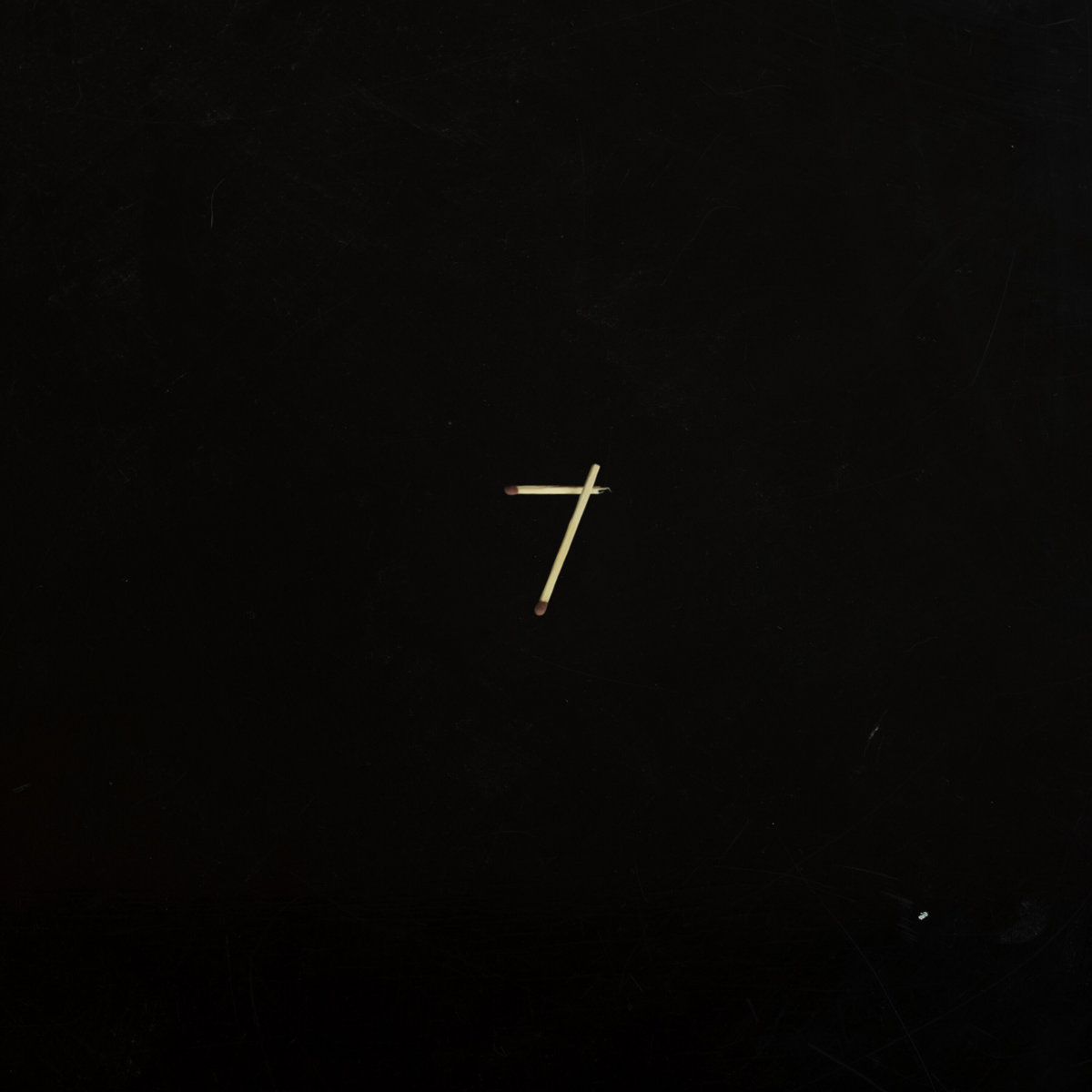 Choosing an album of the decade is, of course, a near-impossible job. Not every dog is running the same race, for a start. Who’s to say which is better when you’re choosing between cakes and clocks? Sometimes it just comes down to whether you’re hungry or late.
Choosing an album of the decade is, of course, a near-impossible job. Not every dog is running the same race, for a start. Who’s to say which is better when you’re choosing between cakes and clocks? Sometimes it just comes down to whether you’re hungry or late.
One group, however, have, in the last couple of years, managed to excel in both quality and quantity. They’ve released no fewer than four albums – two of them doubles – in 18 months and there’s not one misstep on any of those 12 sides. Not one.
Sault arrived shrouded in mystery in May 2019. Their debut album, 5, was a blaze of British soul with a hefty side order of punk-funk jump-up attitude and a seasoning of R&B and African funk. Plundering the past with their feet firmly in the present, their debut – and the September follow-up, 7 – seemed to be almost impossibly fully-formed. Instant classics both.
Then in June 2020, just the world was mouthing a collective “what the fu..?”, Sault released Untitled (Black Is). They’d been busy. A 20-track follow-up featuring the same energy, the same craft, the same nailed-on knack for hook and swing, but with a more explicitly political tone that was so in step with current events it felt almost prophetic.
Untitled (Rise) followed in September 2020, the same week that people were receiving their pre-ordered vinyl of (Black Is). Another double, it was a smoother, more string-soaked offering, but still tirelessly inventive and a staggeringly affective.
Four albums, each a perfect tonic for the times, each thoroughly transcendent.
A perfect playlist.
Leonard Cohen – You Want It Darker – by Mark Kidel
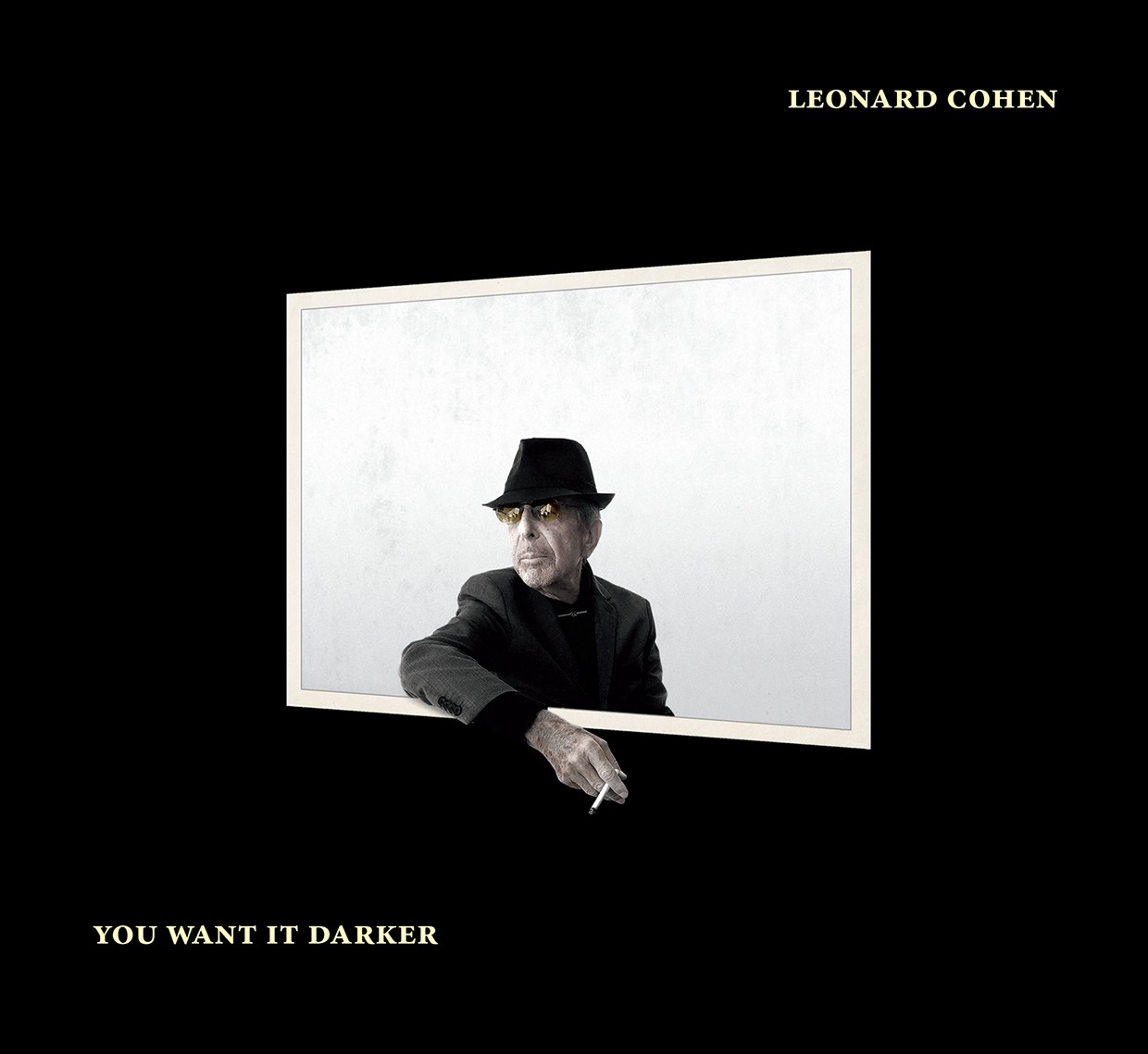 Leonard Cohen’s “You Want It Darker” – faultlessly produced, deeply inspired and so well performed, is one the very best medicines for the existential ailments of my eighth decade, as well a weathervane for the malaise of our times. Cohen came from a long line of Jewish wisdom, re-inventing that tradition’s knife-edge play between light and dark, irony and faith, the joy of poetry and the terror of the abyss. The music that accompanied us baby-boomers out of post-war, post-Holocaust, post-Hiroshima despair celebrated youthful rebellion and drew its strength from the spirituality implicit in musics of African and African-American origin. Rock’n’roll – whether Elvis or Little Richard, was a celebration of Dionysiac pleasure and the dance. The dance at the heart of popular music kept going into the Sixties and the decades that followed, but eventually all the rockers grew old. How to navigate creeping senescence, beyond the crutches of hair-dye and weaves, facelifts and worse? Few managed this as well as Leonard Cohen – who was never a rocker but appealed to the same audience. There’s, of course, constant evidence of renewal and creativity– for me most tellingly in artists like Bon Iver, Sufjan Stevens, Anaïs Mitchell or Phoebe Bridgers (to name just a few), but Cohen (and Dylan too) makes the very most of facing mortality with infinite grace, humour and soul.
Leonard Cohen’s “You Want It Darker” – faultlessly produced, deeply inspired and so well performed, is one the very best medicines for the existential ailments of my eighth decade, as well a weathervane for the malaise of our times. Cohen came from a long line of Jewish wisdom, re-inventing that tradition’s knife-edge play between light and dark, irony and faith, the joy of poetry and the terror of the abyss. The music that accompanied us baby-boomers out of post-war, post-Holocaust, post-Hiroshima despair celebrated youthful rebellion and drew its strength from the spirituality implicit in musics of African and African-American origin. Rock’n’roll – whether Elvis or Little Richard, was a celebration of Dionysiac pleasure and the dance. The dance at the heart of popular music kept going into the Sixties and the decades that followed, but eventually all the rockers grew old. How to navigate creeping senescence, beyond the crutches of hair-dye and weaves, facelifts and worse? Few managed this as well as Leonard Cohen – who was never a rocker but appealed to the same audience. There’s, of course, constant evidence of renewal and creativity– for me most tellingly in artists like Bon Iver, Sufjan Stevens, Anaïs Mitchell or Phoebe Bridgers (to name just a few), but Cohen (and Dylan too) makes the very most of facing mortality with infinite grace, humour and soul.
David Bowie – Blackstar – by Howard Male
 How can I make a claim for this enigmatic artefact as the album of the decade when I haven’t even played it since the year following the great man’s death? Even now, as the critic in me feels obliged to see if a fresh listen provides new insights, my reluctance to go back there persists. But of course part of the black-hole power of Blackstar is that it is already in my bones, its every sonic nuance – from eerie synth twitches, to agonising shudders of sax, to Bowie’s own career-high vocals – etched into my memory. Just seven blackly comic (“Where the fuck did Monday go?”) and deeply ominous songs that say a fond adieu, while at the same time heartbreakingly revealing Bowie’s attachment to this world (“the English evergreens I’m running to”). So no, not just the album of the decade, but also the most cohesive and emotionally replete artistic statement of the man’s career. With that in mind perhaps it’s a kind of low-level anger, rather than sadness, that’s made me keep my distance. Anger that David Jones (for of all his records, this feels the most personal, the most near the knuckle) never got to follow through on this new fruitful rock-jazz (rather than jazz rock, God forbid) direction.
How can I make a claim for this enigmatic artefact as the album of the decade when I haven’t even played it since the year following the great man’s death? Even now, as the critic in me feels obliged to see if a fresh listen provides new insights, my reluctance to go back there persists. But of course part of the black-hole power of Blackstar is that it is already in my bones, its every sonic nuance – from eerie synth twitches, to agonising shudders of sax, to Bowie’s own career-high vocals – etched into my memory. Just seven blackly comic (“Where the fuck did Monday go?”) and deeply ominous songs that say a fond adieu, while at the same time heartbreakingly revealing Bowie’s attachment to this world (“the English evergreens I’m running to”). So no, not just the album of the decade, but also the most cohesive and emotionally replete artistic statement of the man’s career. With that in mind perhaps it’s a kind of low-level anger, rather than sadness, that’s made me keep my distance. Anger that David Jones (for of all his records, this feels the most personal, the most near the knuckle) never got to follow through on this new fruitful rock-jazz (rather than jazz rock, God forbid) direction.
D’Angelo – Black Messiah – by Joe Muggs
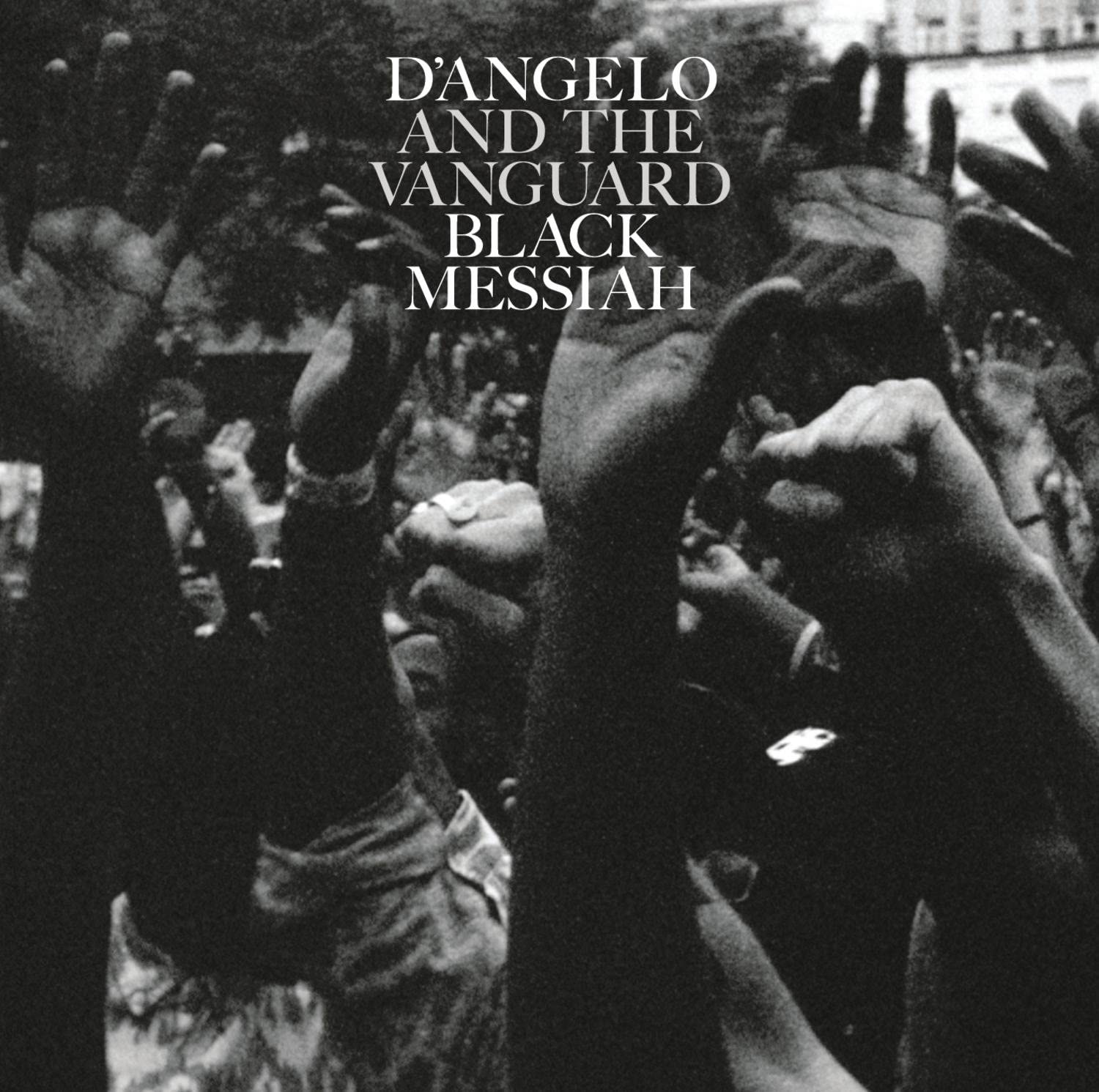 Some recent records are as “important” as Black Messiah; some are as pleasurable to listen to. But not one combines the two so totally. Ten years in the making, from a musician struggling with self-consciousness and addiction, it could have been a mess. But as fans pressed play on December 15 2014 – it was released without warning – it revealed itself instantly as an unquestionable masterpiece.
Some recent records are as “important” as Black Messiah; some are as pleasurable to listen to. But not one combines the two so totally. Ten years in the making, from a musician struggling with self-consciousness and addiction, it could have been a mess. But as fans pressed play on December 15 2014 – it was released without warning – it revealed itself instantly as an unquestionable masterpiece.
Incredibly, despite its long gestation, it was timely. The rush release was prompted by the rising tide of Black Lives Matter – and the record is full of rage and Black pride. But that pride is just as often expressed through joy. It’s packed on the micro and macro level with funk, fun, romance, vaudevillian strut. It’s an encyclopaedia of Black music history from Mingus and Simone through Funkadelic and Prince to Outkast and J Dilla – with a splash of White Album-era Beatles to boot – and each song reveals rich depths with every listen. Yet somehow it’s immediate too, like a band kicking out the jams, an absolute celebration of being alive. Its influence was immediate, and is still being felt, but first and most importantly, it’s still as thrilling as on that first play.
Swans – To Be Kind – by Guy Oddy
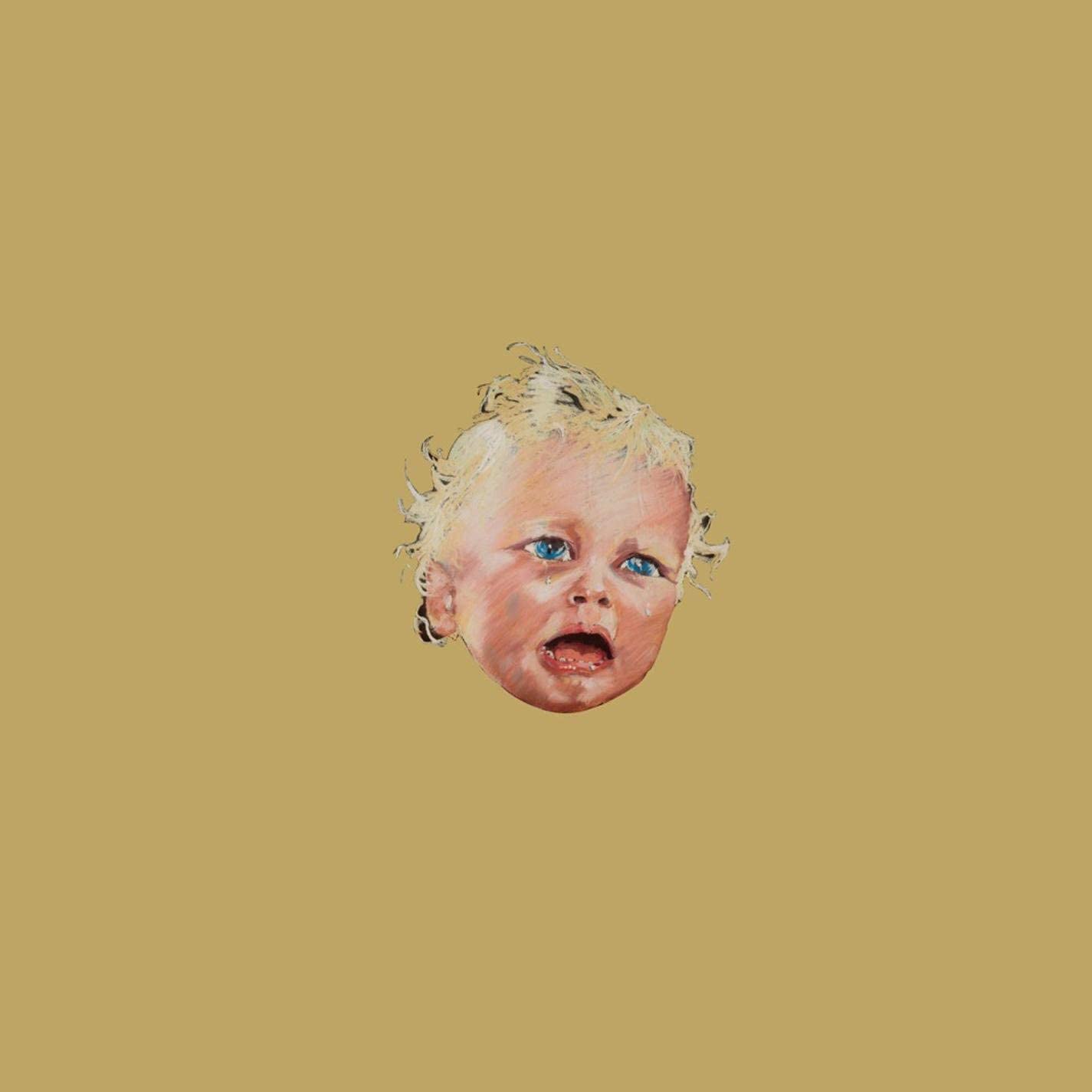 The last 10 years has not only seen the resurrection of Michael Gira’s feral noise merchants, Swans, but has also seen them produce what is arguably some of their most compelling music and most satisfying albums to date. Of these discs, To Be Kind is the one that returned the most often to my stereo, to blast out its soundtrack to an imaginary pagan rite. Coming on like an amalgam of Stravinsky’s Rite of Spring, Syd Barrett’s Pink Floyd and Nick Cave’s Birthday Party, To Be Kind is a musical force of nature that feels like being plunged into the most unpredictable of storm systems. That’s not to say that To Be Kind is one-note in its approach. “Just a Little Boy” begins as an off-kilter blues before it builds into a deafening crescendo that brutally bursts out of the speakers, before finally fading away. “Screen Shot” is brooding and menacing, while “Bring the Sun/Toussaint L’Ouverture” is a half-hour long journey into a primeval heart of darkness that shakes the soul. In short, To Be Kind is no piece of pop fluff but a mature masterpiece on a par with any of the recognised greats, from any genre within the musical canon.
The last 10 years has not only seen the resurrection of Michael Gira’s feral noise merchants, Swans, but has also seen them produce what is arguably some of their most compelling music and most satisfying albums to date. Of these discs, To Be Kind is the one that returned the most often to my stereo, to blast out its soundtrack to an imaginary pagan rite. Coming on like an amalgam of Stravinsky’s Rite of Spring, Syd Barrett’s Pink Floyd and Nick Cave’s Birthday Party, To Be Kind is a musical force of nature that feels like being plunged into the most unpredictable of storm systems. That’s not to say that To Be Kind is one-note in its approach. “Just a Little Boy” begins as an off-kilter blues before it builds into a deafening crescendo that brutally bursts out of the speakers, before finally fading away. “Screen Shot” is brooding and menacing, while “Bring the Sun/Toussaint L’Ouverture” is a half-hour long journey into a primeval heart of darkness that shakes the soul. In short, To Be Kind is no piece of pop fluff but a mature masterpiece on a par with any of the recognised greats, from any genre within the musical canon.
Arctic Monkeys – AM – by Kathryn Reilly
 In the "careful what you wish for" stakes, not many bands have had the start that the Arctic Monkeys' enjoyed. The first to get a helping hand from social media, they catapulted to the top of the pile with the fastest-selling debut of all time, won the Mercury Prize and – bizarrely – became fodder for the BBC news. But this was, perhaps, an unenviable position to be in and they're still struggling to create another perfect album.
In the "careful what you wish for" stakes, not many bands have had the start that the Arctic Monkeys' enjoyed. The first to get a helping hand from social media, they catapulted to the top of the pile with the fastest-selling debut of all time, won the Mercury Prize and – bizarrely – became fodder for the BBC news. But this was, perhaps, an unenviable position to be in and they're still struggling to create another perfect album.
The difficult second album (Favourite Worst Nightmare) came close, but then followed a disappointing detour through the mediocre. Humbug and Suck It And See offered only a meagre scattering of gems. So the release of AM in 2013 was welcome. It was an altogether raunchier proposition peppered with plenty of iconic riffs.
From the stark artwork, to the first single – "R U Mine" – to the re-interpretation of John Cooper Clarke's poem "I Wanna Be Yours", it was Arctic Monkeys 2.0. Powerful singles came thick and fast – "Do I Wanna Know", "Why'd You Only Call Me When You're High?", "One for the Road", "Arabella" and "Snap Out of It" – doing much to reinstate their reputation. No longer "the voice of the people" – they'd become way more LA than Sheffield. Some distance had been travelled since "Fake Tales of San Francisco". Nevertheless, they were finally back doing what they do best – singing thrusting songs about girls and rocking out.
Scottish National Jazz Orchestra – American Adventure – by Sebastian Scotney
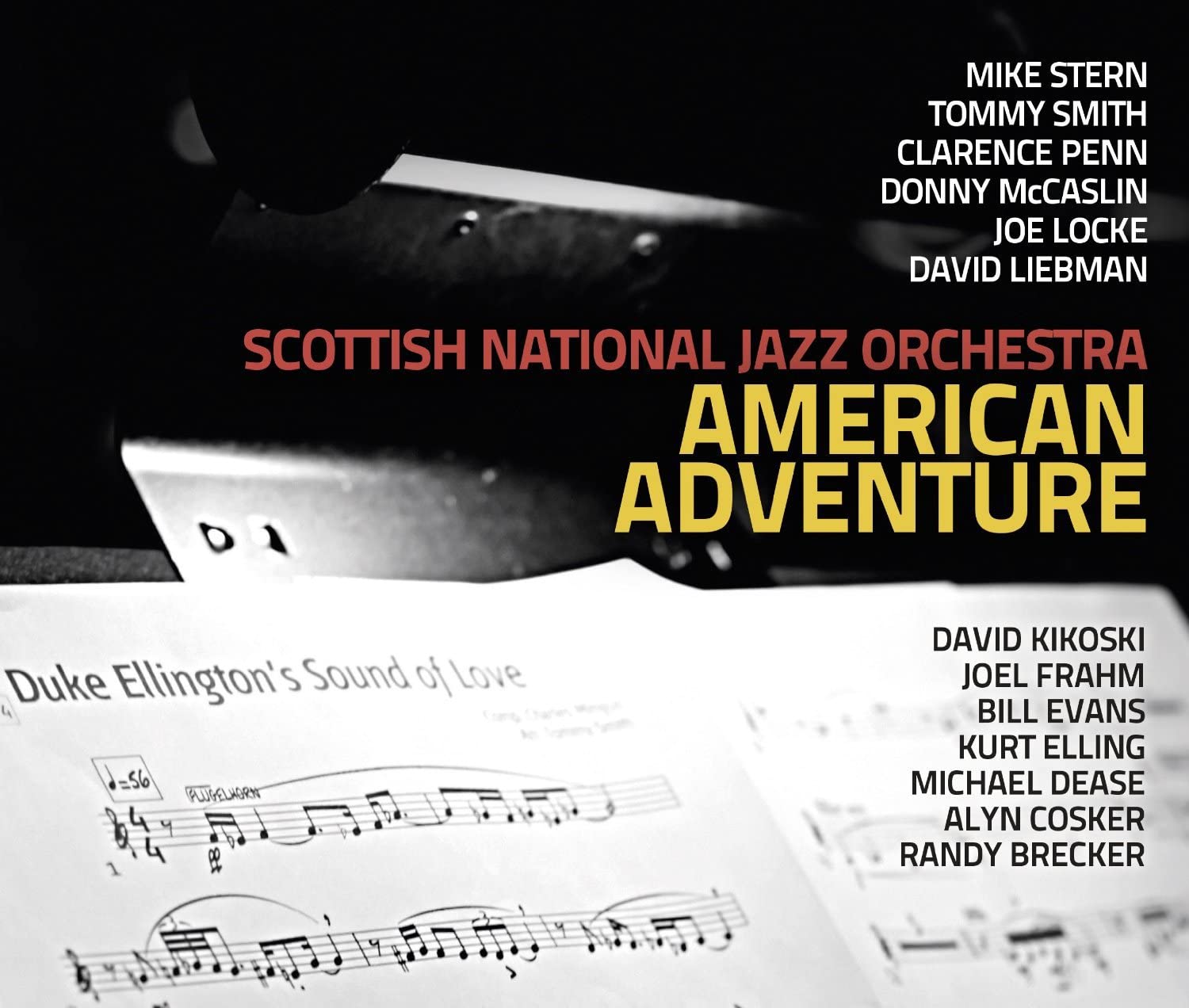 American Adventure is a joyous monument to what one person's talent plus a superhuman level of drive and determination can achieve. Saxophonist Tommy Smith founded the SNJO in 1995. This recording was made during their first ever North American tour, a series of 2013 live dates culminating in an appearance at the Montreal Jazz Festival, the world's largest. During the tour, they also stopped off for two days of recordings at Avatar Studios (now the Power Station) in the Hell’s Kitchen district of Manhattan.
American Adventure is a joyous monument to what one person's talent plus a superhuman level of drive and determination can achieve. Saxophonist Tommy Smith founded the SNJO in 1995. This recording was made during their first ever North American tour, a series of 2013 live dates culminating in an appearance at the Montreal Jazz Festival, the world's largest. During the tour, they also stopped off for two days of recordings at Avatar Studios (now the Power Station) in the Hell’s Kitchen district of Manhattan.
But that’s only the tip of the iceberg in the organisation of this project. Tommy Smith had also booked a stellar group of soloists: Mike Stern (a red carpet for him, since SNJO doesn’t employ a regular guitarist), Randy Brecker, Kurt Elling, Dave Liebman, Joe Locke, Donny McCaslin. And he’d also commissioned bespoke arrangements to show off the soloists and the band from endearingly modest genius Geoffrey Keezer and from ultimate professional Fred Sturm. It’s a monument to him too: Sturm died just six months after the album's release.
So on went the red light at Avatar Studios, the tapes (or their digital equivalent) rolled. There’s a mood of “can-this-really-be-happening-to-us”, edge-of-the-seat excitement among these resoundingly happy Scots right from the opener, Marcus Miller’s tune "Splatch" in an arrangement by Fred Sturm. Mike Stern's powerful, elegant guitar wails majestically, and his duet “battle” with Ayr-born (pun intended) SNJO drummer Alyn Cosker is riveting.
Susanne Sundfør – A Night At Salle Pleyel – by Kieron Tyler
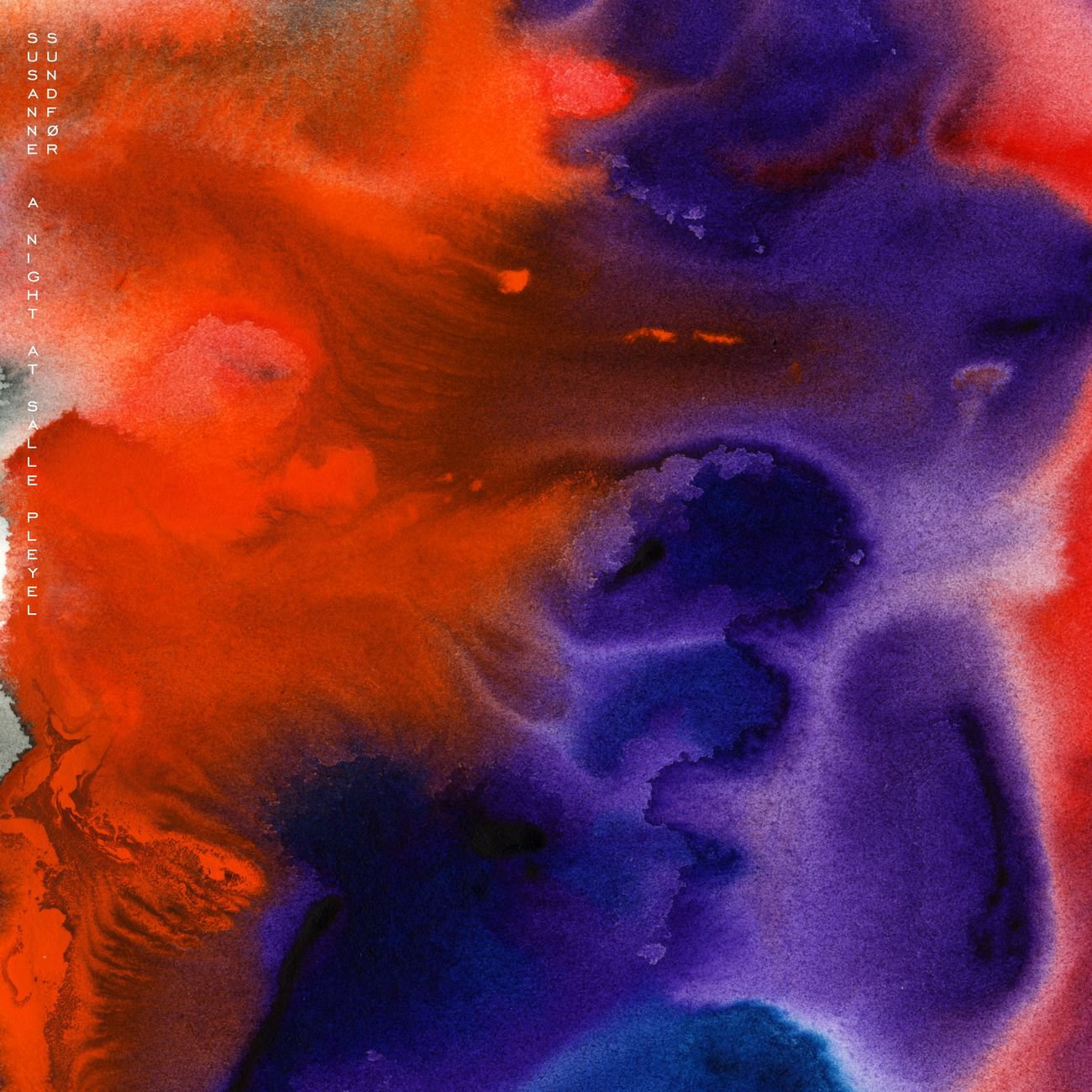 Susanne Sundfør’s second album The Brothel was issued in her native Norway in March 2010. A bolt from the blue and a huge Norwegian success, it was intense, lyrically complex, musically adventurous and packed with tunes. Her live shows in the wake of its release were just as impactful.
Susanne Sundfør’s second album The Brothel was issued in her native Norway in March 2010. A bolt from the blue and a huge Norwegian success, it was intense, lyrically complex, musically adventurous and packed with tunes. Her live shows in the wake of its release were just as impactful.
What followed was unexpected. Her next album, A Night At Salle Pleyel, was a double set with music on three of its four sides. Just 600 copies were made and there was no CD counterpart. Recorded live in Oslo – although it sounded like a studio recording – in August 2011, it featured six instrumental movements played by her and four other musicians on various synthesisers. The inspiration was a concert of Rachmaninoff and Stravinsky’s music Sundfør saw at Paris’s Salle Pleyel.
On its own, A Night At Salle Pleyel was terrific but it also a signified that Sundfør wasn’t about commercial expectations. This has ensured that each of her extraordinary ensuing studio albums has been as different from what came before as A Night… was from The Brothel. September 2017’s Music For People In Trouble was unlike February 2015’s Ten Love Songs, itself not a retread of March 2012’s The Silicone Veil. A Night At Salle Pleyel telegraphed that Susanne Sundfør’s path is her own.
rating
Buy
Share this article
Add comment
The future of Arts Journalism
You can stop theartsdesk.com closing!
We urgently need financing to survive. Our fundraising drive has thus far raised £49,000 but we need to reach £100,000 or we will be forced to close. Please contribute here: https://gofund.me/c3f6033d
And if you can forward this information to anyone who might assist, we’d be grateful.

Subscribe to theartsdesk.com
Thank you for continuing to read our work on theartsdesk.com. For unlimited access to every article in its entirety, including our archive of more than 15,000 pieces, we're asking for £5 per month or £40 per year. We feel it's a very good deal, and hope you do too.
To take a subscription now simply click here.
And if you're looking for that extra gift for a friend or family member, why not treat them to a theartsdesk.com gift subscription?
more New music
 'Vicious Delicious' is a tasty, burlesque-rockin' debut from pop hellion Luvcat
Contagious yarns of lust and nightlife adventure from new pop minx
'Vicious Delicious' is a tasty, burlesque-rockin' debut from pop hellion Luvcat
Contagious yarns of lust and nightlife adventure from new pop minx
 Music Reissues Weekly: Hawkwind - Hall of the Mountain Grill
Exhaustive box set dedicated to the album which moved forward from the ‘Space Ritual’ era
Music Reissues Weekly: Hawkwind - Hall of the Mountain Grill
Exhaustive box set dedicated to the album which moved forward from the ‘Space Ritual’ era
 'Everybody Scream': Florence + The Machine's brooding sixth album
Hauntingly beautiful, this is a sombre slow burn, shifting steadily through gradients
'Everybody Scream': Florence + The Machine's brooding sixth album
Hauntingly beautiful, this is a sombre slow burn, shifting steadily through gradients
 Cat Burns finds 'How to Be Human' but maybe not her own sound
A charming and distinctive voice stifled by generic production
Cat Burns finds 'How to Be Human' but maybe not her own sound
A charming and distinctive voice stifled by generic production
 Todd Rundgren, London Palladium review - bold, soul-inclined makeover charms and enthrals
The wizard confirms why he is a true star
Todd Rundgren, London Palladium review - bold, soul-inclined makeover charms and enthrals
The wizard confirms why he is a true star
 It’s back to the beginning for the latest Dylan Bootleg
Eight CDs encompass Dylan’s earliest recordings up to his first major-league concert
It’s back to the beginning for the latest Dylan Bootleg
Eight CDs encompass Dylan’s earliest recordings up to his first major-league concert
 Ireland's Hilary Woods casts a hypnotic spell with 'Night CRIÚ'
The former bassist of the grunge-leaning trio JJ72 embraces the spectral
Ireland's Hilary Woods casts a hypnotic spell with 'Night CRIÚ'
The former bassist of the grunge-leaning trio JJ72 embraces the spectral
 Lily Allen's 'West End Girl' offers a bloody, broken view into the wreckage of her marriage
Singer's return after seven years away from music is autofiction in the brutally raw
Lily Allen's 'West End Girl' offers a bloody, broken view into the wreckage of her marriage
Singer's return after seven years away from music is autofiction in the brutally raw
 Music Reissues Weekly: Joe Meek - A Curious Mind
How the maverick Sixties producer’s preoccupations influenced his creations
Music Reissues Weekly: Joe Meek - A Curious Mind
How the maverick Sixties producer’s preoccupations influenced his creations
 Pop Will Eat Itself, O2 Institute, Birmingham review - Poppies are back on patrol
PWEI hit home turf and blow the place up
Pop Will Eat Itself, O2 Institute, Birmingham review - Poppies are back on patrol
PWEI hit home turf and blow the place up
 'Fevereaten' sees gothic punk-metallers Witch Fever revel in atmospheric paganist raging
Second album from heavy-riffing quartet expands sonically on their debut
'Fevereaten' sees gothic punk-metallers Witch Fever revel in atmospheric paganist raging
Second album from heavy-riffing quartet expands sonically on their debut

Comments
Two of the best albums I have
Cheers, James. I have not